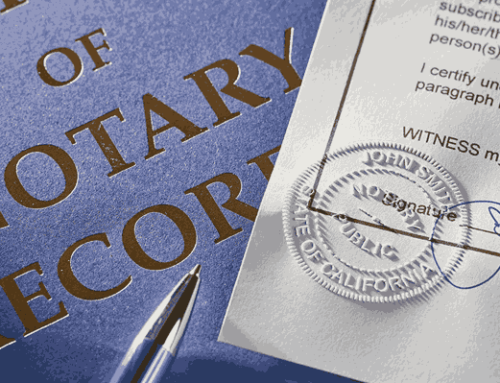When it comes to business relationships and professional services, the concept of a retainer fee often enters the conversation. Understanding retainer fees is crucial for freelancers, lawyers, and clients seeking specialized assistance. In this blog, we’ll explore retainer fees, their purpose, types, and significance in various professional fields.
What is a Retainer Fee?
A retainer fee is a financial arrangement often used in the world of professional services. A retainer fee is a payment made upfront by a client to a service provider, usually before any work or services are provided. This fee serves several important purposes:
- Priority Access: The primary function of a retainer fee is to secure the availability of the service provider. It’s like reserving a spot in their schedule. When you pay a retainer, you’re essentially telling the professional, “I want to make sure you’re available to help me when I need you.”
- Financial Assurance: From the service provider’s perspective, a retainer fee provides financial stability. It guarantees a certain level of income, which can be especially important for freelancers and small businesses. This predictable income can help them plan their finances and resources more effectively.
- Establishing Commitment: A retainer fee also signifies a commitment between the client and the service provider. It demonstrates that both parties are serious about working together over an extended period. It’s a way of saying, “We’re in this together.”
- Flexibility: Retainer agreements can vary in duration and scope. Some may cover ongoing services, while others may be project-specific. This flexibility allows clients to tailor the arrangement to their specific needs.
How a Retainer Fee Works
Upon payment of the retainer fee and agreement, the client is assured of the service provider’s readiness for the agreed-upon services. Services deduct costs from the retainer balance as they are provided. When the retainer balance gets low, the client may need to replenish it to ensure the continuity of the arrangement.
Who Uses Retainer Fees
- Various industries employ retainer fees and professions, including:
- Legal Services: Clients may retain lawyers to ensure immediate legal assistance when necessary, especially in ongoing legal matters.
- Consulting: Businesses might retain consultants to provide continuous strategic advice or support on specific projects.
- Freelancing: Freelancers, such as writers, designers, and developers, often request retainer fees to secure regular work from clients, ensuring a steady income.
A retainer fee benefits both clients and service providers by ensuring access to specialized services, financial stability, and a committed working relationship. It’s a win-win arrangement that plays a crucial role in today’s professional landscape.
Should You Have a Lawyer on Retainer?
Deciding to retain a lawyer is significant, and it should align with your specific legal needs and business context. Here’s a more detailed breakdown of the factors to consider:
- Regular Legal Needs: If your business deals with legal matters like contract drafting, compliance issues, or regulatory challenges frequently, having a lawyer on retainer can be highly beneficial. It provides immediate legal expertise when needed, saving time and effort in finding counsel for each issue.
- Preventative Legal Support: Retaining a lawyer can be a proactive step to prevent legal problems. They review contracts, agreements, and business practices to spot legal risks and offer guidance on mitigation. This preventative approach can save you from costly legal disputes down the road.
- Crisis Management: They assess contracts, agreements, and business practices for identifying legal risks and provide guidance for mitigation. This can be especially crucial in situations where timely action is necessary to protect your rights or resolve disputes.
- Industry Expertise: For businesses in highly regulated industries or with complex legal needs, a specialized lawyer can offer tailored legal solutions and valuable insights.
- Cost Considerations: While the benefits of having a lawyer on retainer are clear, it’s important to weigh this against the cost. Retainer fees vary, so assess whether the benefits and fee savings justify the ongoing expense.
- Relationship Building: A lasting lawyer-client relationship can yield a better grasp of your business and legal requirements, potentially resulting in more personalized and effective legal advice.
- Peace of Mind: Knowing you have a lawyer readily available can provide peace of mind, reducing the stress associated with unexpected legal issues.

Importance of a Retainer Fee for Freelancers
Freelancers cannot overstate the importance of a retainer fee, and here’s a more detailed exploration of why:
- Steady Income: Freelancers often face income instability due to the sporadic nature of project-based work. Retainer fees provide a dependable income source, smoothing out financial fluctuations and helping freelancers maintain financial stability.
- Client Commitment: When clients pay a retainer fee, it signifies their commitment to the freelancer’s services. This commitment often translates into longer-term client relationships, increasing the likelihood of repeat business and referrals.
- Prioritization: Clients on retainer typically receive priority treatment. Freelancers are more likely to prioritize their work, ensuring that projects are handled promptly and efficiently. This can enhance client satisfaction and build trust.
- Reduced Marketing Efforts: With a steady stream of work from retainer clients, freelancers can reduce the resources allocated to marketing and acquiring new clients. This can free up time and energy for focusing on project delivery and skill enhancement.
- Financial Stability: Freelancers often grapple with the uncertainty of irregular income.
- Having guaranteed income from retainer clients can ease financial stress and enable freelancers to plan their finances, investments, and future projects more effectively.
- Streamlined Client Management: Retainer agreements often come with predefined terms and expectations, simplifying the client management process. This can lead to smoother working relationships and less administrative overhead.
What Does It Mean to Be on the Retainer?
Being ‘on retainer’ means committing to providing specific services or expertise to a client or employer on an ongoing or predefined basis through a formal agreement. This arrangement carries several implications and responsibilities:
- Priority Access: As someone on retainer, you agree to prioritize the needs of the client or employer who has retained your services. This means that when they require your assistance or expertise, you are expected to be readily available. and responsive.
- Regular Work: Being on retainer often involves a commitment to undertake tasks, projects, or assignments as they arise. This can provide you with a consistent workflow and income, which can be especially valuable for freelancers and consultants.
- Dedicated Service: Clients or employers who retain your services expect a higher level of dedication compared to one-off or occasional contractors. You are essentially part of their extended team, and they rely on your consistent support.
- Mutual Commitment: Being on retainer implies a mutual commitment between you and the client or employer. They commit to regularly engaging your services, and in return, you commit to meeting their needs promptly and effectively.
- Clear Scope of Work: It’s essential to have a well-defined scope of work outlined in the retainer agreement. This specifies the services you will provide, the expected deliverables, and any limitations or boundaries to the services.
- Regular Communication: Effective communication is key when you’re on retainer. Maintaining open communication with the client or employer is crucial to staying aligned with their needs and objectives.
- Financial Arrangement: Retainer agreements typically involve a financial arrangement, such as a recurring fee or payment structure. This ensures that you are compensated for your availability and services as agreed upon.
- Flexibility: Depending on the retainer’s nature, flexibility with your schedule and adapting to evolving client needs may be necessary. This adaptability is a valuable trait when you’re on a retainer.
- Quality and Consistency: Clients or employers expect a consistent level of quality and performance when you’re on retainer. Maintaining high standards is crucial for maintaining trust and retaining your retainer agreement.
- Contractual Obligations: Like any professional agreement, being on retainer is a contractual obligation. Both parties must adhere to the terms and conditions in the retainer agreement, as failure to do so can result in legal and professional consequences.

Types of Retainer Fees
Retainer fees can come in various types and structures, each tailored to suit specific needs and industries. Here are some common types of retainer fees:
General Retainer: This is a broad retainer fee paid to secure the availability of a professional or firm in a particular field, such as law, consulting, or accounting.
General retainers don’t specify a particular project but keep the service provider on standby for services within their expertise. They are common when clients anticipate needing ongoing advice or assistance.
Task-Based Retainer: This type of retainer fee is associated with a specific project or task.
It ensures the service provider’s availability until completion of the project, regardless of the project’s duration. Task-based retainers are common in industries like marketing, where clients may need support for a particular campaign or initiative.
Rolling Retainer: Freelancing arrangements typically use rolling retainers.
Clients prepay for a set number of hours or services each month, ensuring the freelancer’s availability. The retainer “rolls over” to the next month if unused hours or services are not exhausted.
Refundable Retainer: In some cases, a retainer fee may be refundable if Services are unused, but a part of the fee may cover admin costs or compensate for reserving the provider’s time. Refundable retainers can be attractive to clients who want flexibility while securing the service provider’s availability.
Non-Refundable Retainer: Unlike refundable retainers, non-refundable retainers do not offer a refund, regardless of whether the services are used. This type of fee ensures the service provider’s commitment and financial stability.
Specific Service Retainer: Some clients may retain a service provider for a specific type of service or expertise. For example, a business might retain an attorney solely for employment law issues or a consultant for market research. This type of retainer allows clients to access specialized knowledge when needed.
Hourly Retainer: Hourly retainers involve prepaying for a certain number of hours of service. The service provider bills against this retainer based on the actual hours worked. This can be common in legal or consulting arrangements.
Monthly Retainer: A monthly retainer fee involves a fixed payment made on a monthly basis. It ensures the service provider’s availability for ongoing services throughout the month. Marketing frequently employs monthly retainers, public relations, and consulting services.
Project-Based Retainer: The retainer fee type depends on the service nature, client needs, and preferences. Define it clearly in the agreement to avoid misunderstandings and align with client and provider goals.

What Should be Included in the Agreement?
A well-crafted retainer agreement is crucial for clarifying rights, responsibilities, and the relationship’s scope for both parties. A retainer agreement should include the following key elements:
- Parties Involved: Identify and provide contact information for both the client and the service provider (e.g., name, address, email, phone number, and legal entity, if applicable).
- Scope of Services: Clearly defines the services or expertise that the service provider will deliver. Specify the nature and extent of the work, including any limitations or exclusions.
- Duration of the Retainer: Indicate the start date and the expected end date or duration of the retainer agreement. Include provisions for renewals or extensions if applicable.
- Fee Structure: Detail the retainer fee amount, including whether it’s a one-time payment, recurring payment (e.g., monthly or annually), or project-based. Specify the payment method, due dates, and any late payment penalties. If applicable, outline the terms for hourly billing and the hourly rate.
- Termination Clause: Define the conditions under which either party can terminate the retainer agreement. Specify notice periods required for termination and any associated consequences.
- Responsibilities: Clearly outline the responsibilities and obligations of both parties. Detail the client’s role in providing information, materials, or cooperation necessary for the service provider to fulfill their duties. Specify the service provider’s responsibilities in delivering the agreed-upon services.
- Confidentiality and Non-Disclosure: Include provisions regarding the handling of sensitive information and data protection. Clarify confidentiality expectations and any legal obligations related to confidentiality.
- Dispute Resolution: Outline a dispute resolution process, such as mediation or arbitration, to resolve conflicts between the parties. Specify the jurisdiction and applicable laws governing the agreement.
- Intellectual Property Rights: Address ownership of any intellectual property created during the retainer relationship.
- Indemnification and Liability: Define the extent of liability and responsibility in the case of errors, omissions, or damages. Outline any indemnification clauses, if applicable.
- Expenses: Clarify which party is responsible for reimbursing expenses related to the services. Specify how expenses will be documented and reimbursed.
- Amendment and Modifications: Describe the process for amending or modifying the retainer agreement, including any written consent requirements.
- Governing Law and Jurisdiction: Specify the jurisdiction and laws that will govern the agreement.
- Entire Agreement: Include a clause stating that the written retainer agreement represents the full understanding between the parties and supersedes any prior agreements or understandings.
- Signatures: Require both parties to sign and date the agreement to indicate their acceptance and commitment.
- Exhibit or Schedule: Append any essential documents, exhibits, or schedules, like a detailed scope of work or fee breakdown, as integral parts of the agreement.
Creating a comprehensive retainer agreement that covers these essential elements helps prevent misunderstandings, disputes, and legal issues. It provides a clear framework for the retainer relationship, ensuring that both parties can work together effectively and professionally.
Summing Up
A well-structured retainer agreement is a vital tool for establishing clear expectations and maintaining a harmonious and productive professional relationship. Whether you’re a service provider or a client, this agreement acts as a roadmap, ensuring clarity on roles, responsibilities, and the retainer terms for both parties.
Incorporating essential elements like service scope, fees, duration, termination, responsibilities, confidentiality, and dispute resolution in the agreement helps prevent conflicts and uncertainties. This transparency and clarity contribute to a more seamless and mutually beneficial working relationship.
A well-crafted retainer agreement safeguards both parties’ interests, sets engagement boundaries, and offers a framework for resolving disputes when necessary.
Investing time and effort in crafting a robust retainer agreement is a wise move to build trust, professionalism, and ensure long-term success in your professional pursuits.





